6 min read • published in partnership with Lloyds
From crisis to growth – How White’s Bakery delivered a turnaround that tripled turnover
When school closures wiped out its largest market, White’s Bakery seized the opportunity to overhaul its operations and future-proof itself for scalable growth. Through smarter systems, structured sales and strategic investment, the family business has tripled revenue to £3.6m and is now targeting £7m by 2030.
White’s Bakery has been producing home-baked goods in Barnsley for nearly a century, supplying schools, hospitals and army bases nationwide. From cakes and cookies to flapjacks and biscuits, each item is produced in a completely nut-free facility and individually wrapped for freshness.
Then, almost overnight, 90% of its wholesale orders disappeared. The Covid-19 closure of schools and colleges decimated demand. But instead of waiting to bounce back, White’s used the moment as a reset – not just to rebuild but to rethink.
“We knew demand would return,” says David White, Managing Director. “But we didn’t want to just go back to how things were. This was our opportunity to create a business that was stronger, leaner and built for scale.”
Rebuilding for resilience and control
The pandemic laid bare some hard truths. Too much reliance on a single market. Too many decisions made on gut feel. And too much daily activity that wasn’t moving the business forward. “Everyone was working hard, but often just busy being busy,” David says.
That prompted a step-change. Together with his children, Georgina (Sales & Marketing Director) and Mathew (Operations Director), the family took a step back to define the business they wanted to build: scalable, resilient, and underpinned by control and visibility.
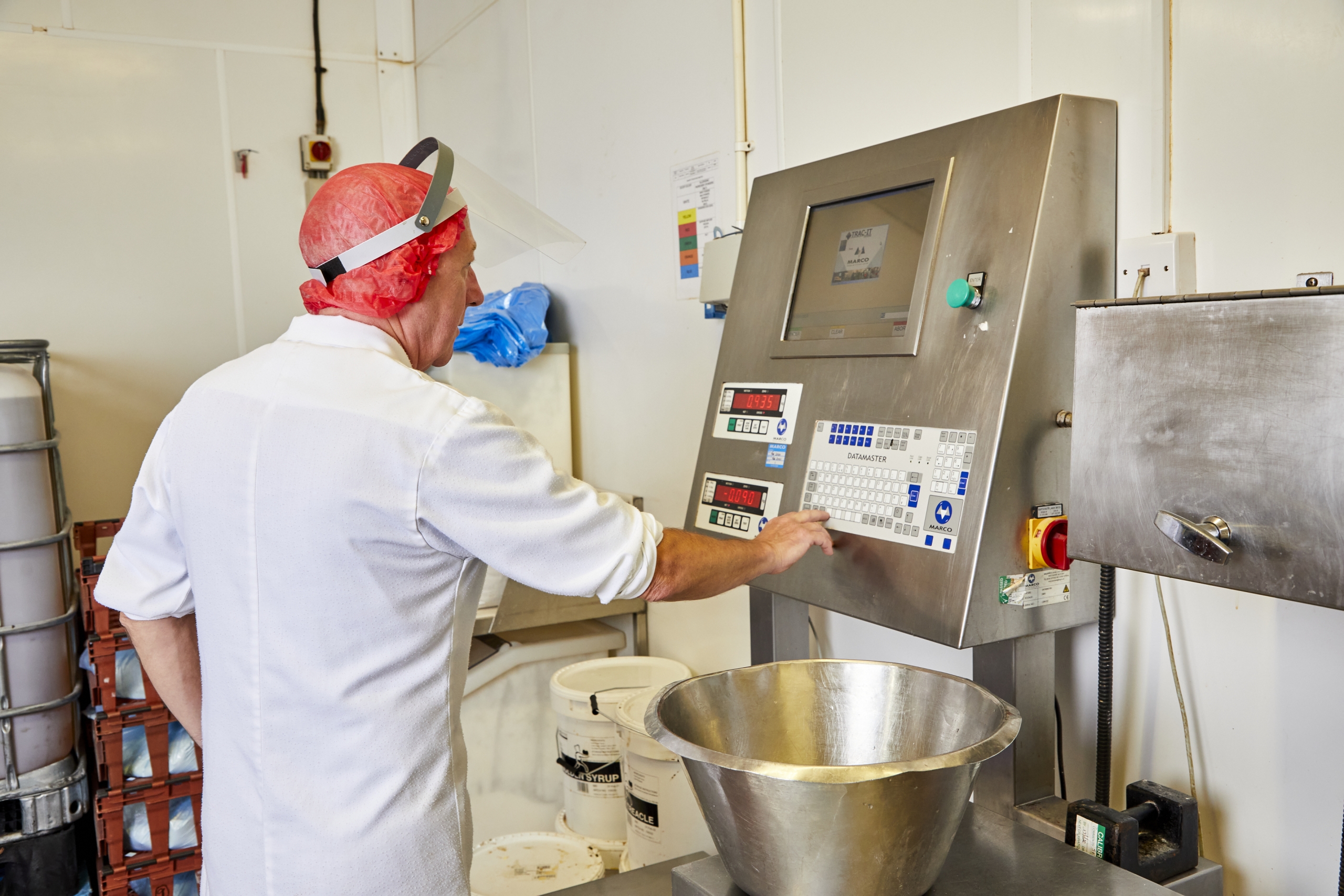
One of the first moves was diversifying the customer base. With over 250 schools already engaged, White’s began expanding across the wider education sector – which includes more than 32,000 nurseries, primary, schools, academies and independent learning centres – while also exploring other public sector channels such as universities, prisons and staff canteens.
Sales are now driven by a structured process, enabling the team to forecast growth, plan resourcing and track the commercial impact. “It’s predictable, and that’s exciting,” David says. “We’ve moved from hoping for growth to building it deliberately, and that enables us to invest with confidence.”
Distribution was also re-engineered. A postcode-level review of customer locations identified regions where White’s could switch from third-party hauliers to its own fleet – improving delivery reliability, reducing costs and creating closer customer relationships
The immediate benefits of that shift led to the acquisition of two brand-new vans – a first for the business – supported by an Asset Finance package from Lloyds.
The bakery’s close relationship with Lloyds has been instrumental in enabling these well-timed, purposeful investments. “Ben, our Relationship Manager, has been fantastic – accessible, responsive and always happy to talk through plans,” says David. “Every time he visits, he brings useful data and performance insights. And the Asset Finance team has been equally supportive, whether funding a new machine or acting as a sounding board. It’s a world away from our experience with our previous bank.”
These changes reflect a wider shift in mindset, from reactive decision-making to proactive, controlled growth. It’s also laid a stronger foundation for the next generation of leaders to build on.
Ben Cutts, Relationship Manager at Lloyds, added: “White’s Bakery is an excellent example of a family-owned business that Lloyds has a strong relationship with, and we look forward to supporting future growth and future generations of the White family with Asset Finance and beyond”
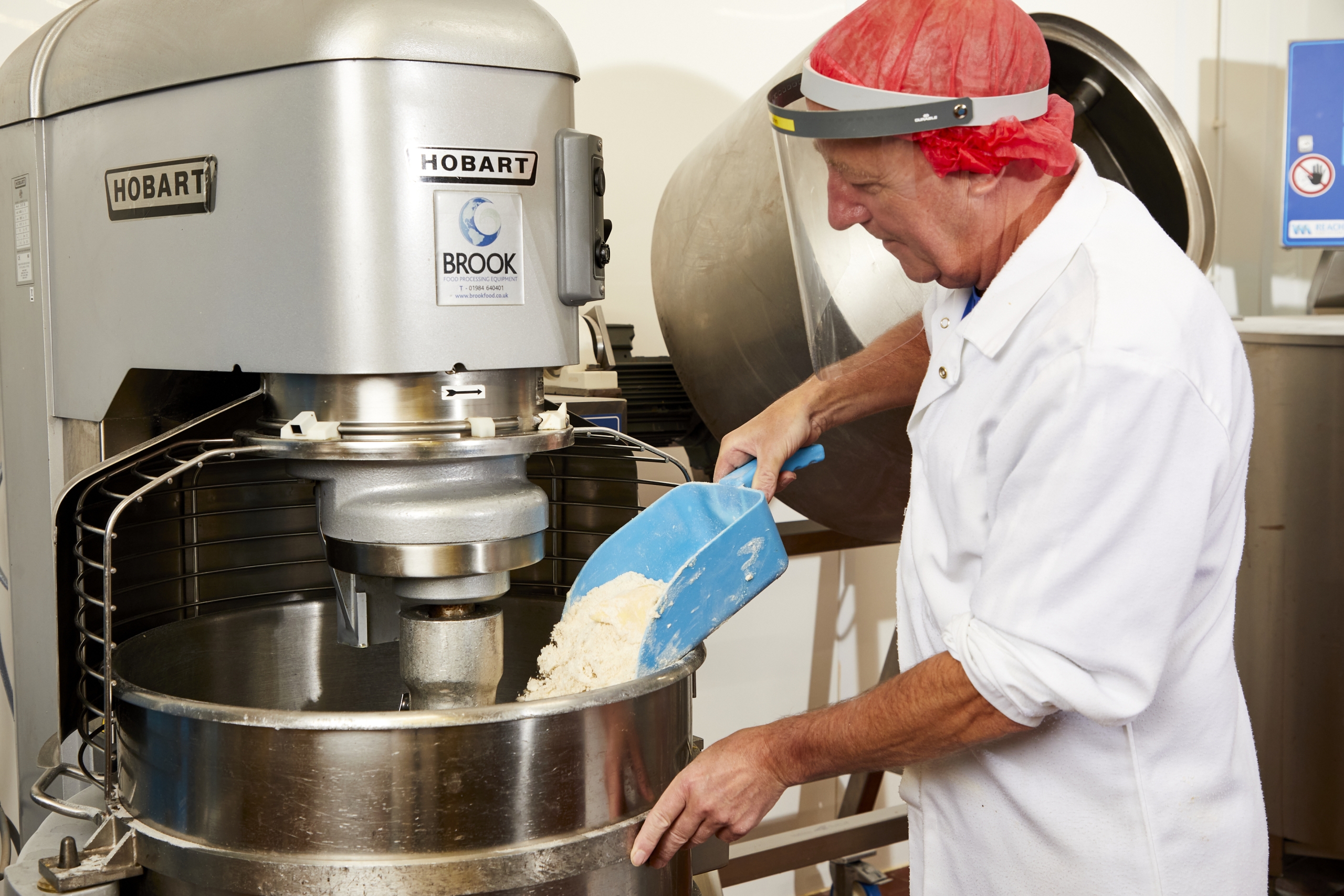
Investing in future leadership
For David, succession is about handing over a company that’s profitable and fit for the future. “I’ve done 40 years of the day-to-day,” he says. “I don’t want Georgina and Mathew to inherit that grind. I want them to inherit a business that runs smarter, not harder.”
To accelerate that transition, the leadership team joined Dan Bradbury’s Business Development Programme – a peer advisory group that drives performance through quarterly reviews, sharing best practice, and financial accountability.
“It’s sharpened our focus and tightened our discipline,” says Georgina. “You don’t just set goals and hope for the best. You present your targets and results, and if something slips, you explain why. That visibility pushes you to think and act more strategically.”
That strategic awareness has been reinforced by leadership and management coaching from Made Smarter, a government initiative helping manufacturers adopt new technologies, with support tailored for Georgina and Mathew. Together, external insights and leadership development have positioned White’s to take the next step – upgrading systems to match the scale of future ambition.
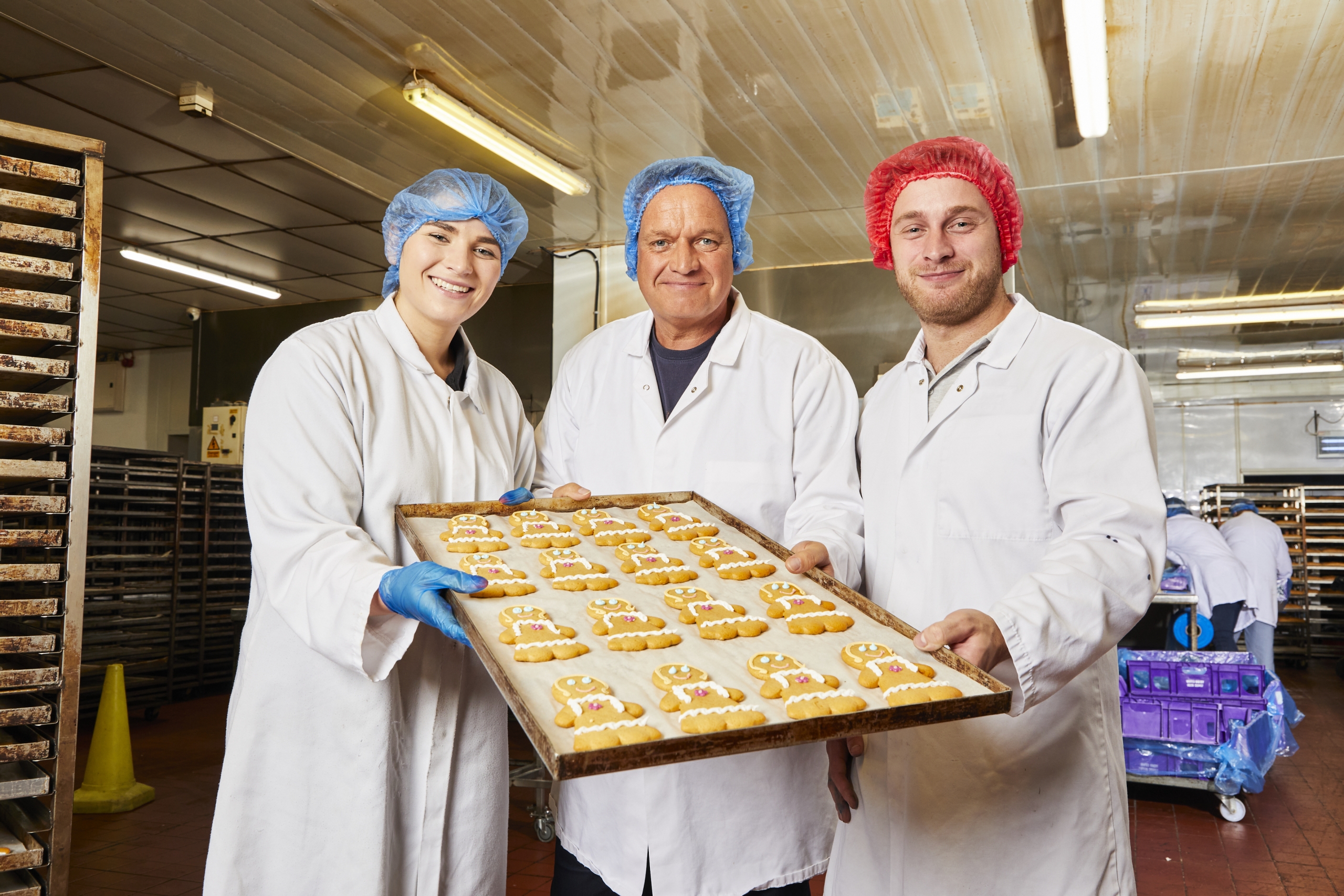
Turning insight into impact
White’s had already begun digitising elements of the business. In recent months, they’ve made a series of targeted investments to enable smarter, faster, more connected ways of working.
New accounting software automatically captures and reconciles bills and receipts, improving financial accuracy and oversight. Manual ingredient tracking has been replaced by a scanning and barcode system, improving speed and compliance. Supervisors now use handheld devices to record allergen checks, start-up routines and cleaning, uploading photographic evidence directly into the daily production log.
“As a BRCGS AA graded site, we have to meet the highest food safety and quality standards,” Mathew says. “These new digital tools reinforce best practice by embedding food safety into daily routines. Everything is recorded in real-time and traceable at the click of a button.”
A key move was the adoption of Cybake, a cloud-based bakery management platform that integrates ordering, production, deliveries and invoicing into one central system. The platform links directly to the new accounting software and a customer web portal enables direct online ordering. The portal enforces delivery schedules and minimum order values, while promoting special offers and products customers might not have tried before.
“Moving to Cybake was a big decision, but it’s transformed how we operate,” says Georgina, who led the smooth overnight transition early in 2025, with all customer and product data transferred in the preceding weeks.
Manual order-taking has been eliminated, significantly reducing errors and allowing staff to now focus on upselling. Delivery schedules are now automatically routed for maximum efficiency, and detailed management reports provide clarity on profitability by product, region or customer type.
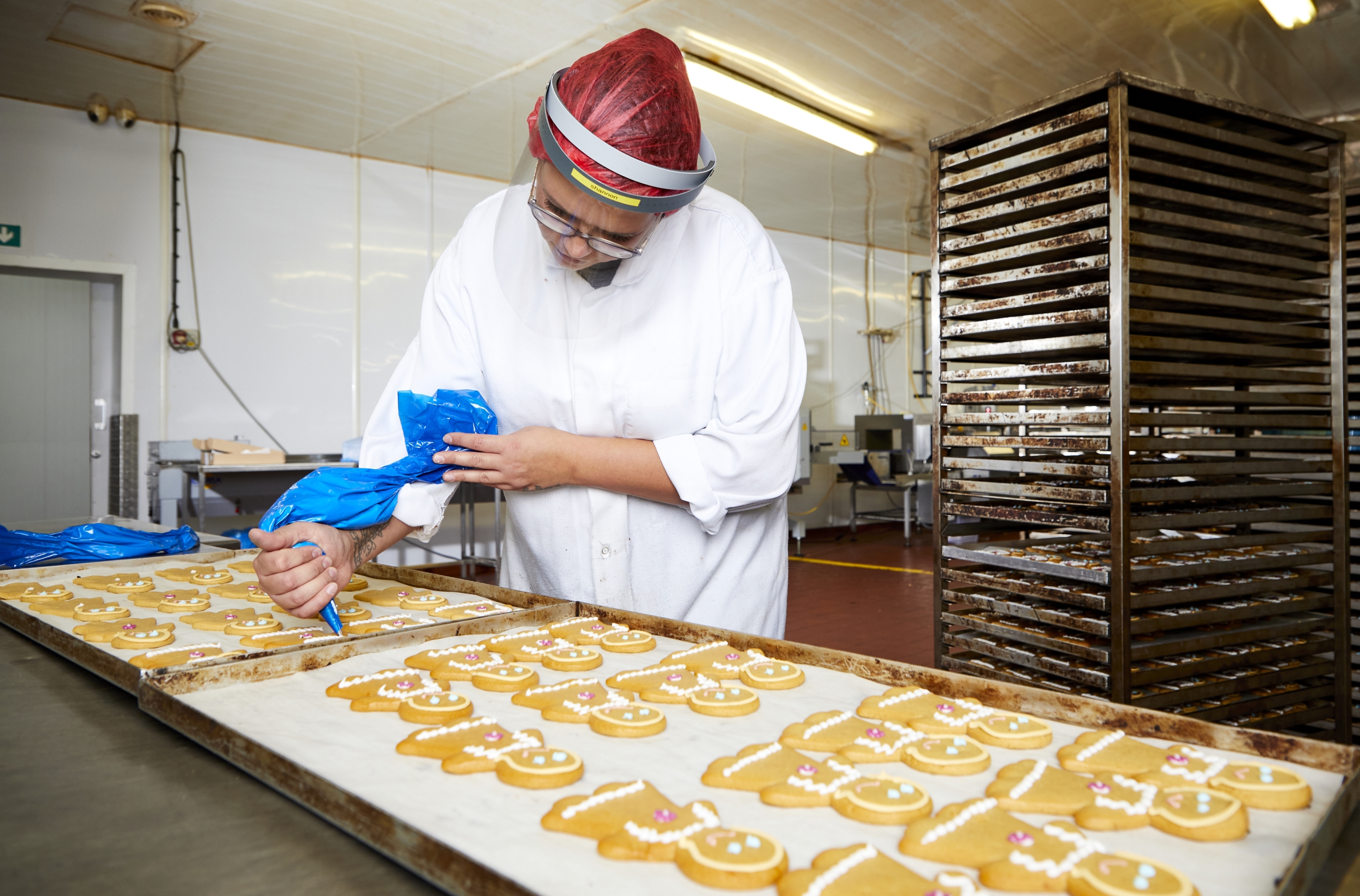
Automating for scale
With a stronger digital foundation now in place, with the latest addition being new HR software, White’s turned its attention to core production. The bakery produces around 180,000 individually wrapped units every week – and rising. To keep pace without compromising quality, manual processes are being replaced by high-performance machinery.
A standout addition is the GEA Comas DLV depositor, a €180,000 investment sourced from Italy that automates the production of brownies, cookies and muffins. The machine ensures even, consistent placement of batter directly from the mixer onto the conveyor belt, reducing waste, cutting rejections and improving product uniformity.
“It used to take three people to manage the oven,” says Mathew. “Now it takes one.”
Other major upgrades include a fully automated tray washer, a bar-marking machine for paninis, climate-controlled storage to improve ingredient consistency year-round, and an automated flapjack cutter sourced from the US.
“We bought the cutter outright to hedge against exchange rate risk,” David says. “Then, we’ll refinance it through Lloyds. We usually pay 20% upfront plus VAT, and spread the rest over four years. That model works well for us as the machine’s paying for itself while we’re paying it off.”
Next on the list are a new automated mixing system and robotic packing, with a second shift also planned to increase output. Finished goods storage capacity has also been identified as a constraint to future growth, prompting the team to explore options for expanding on-site.
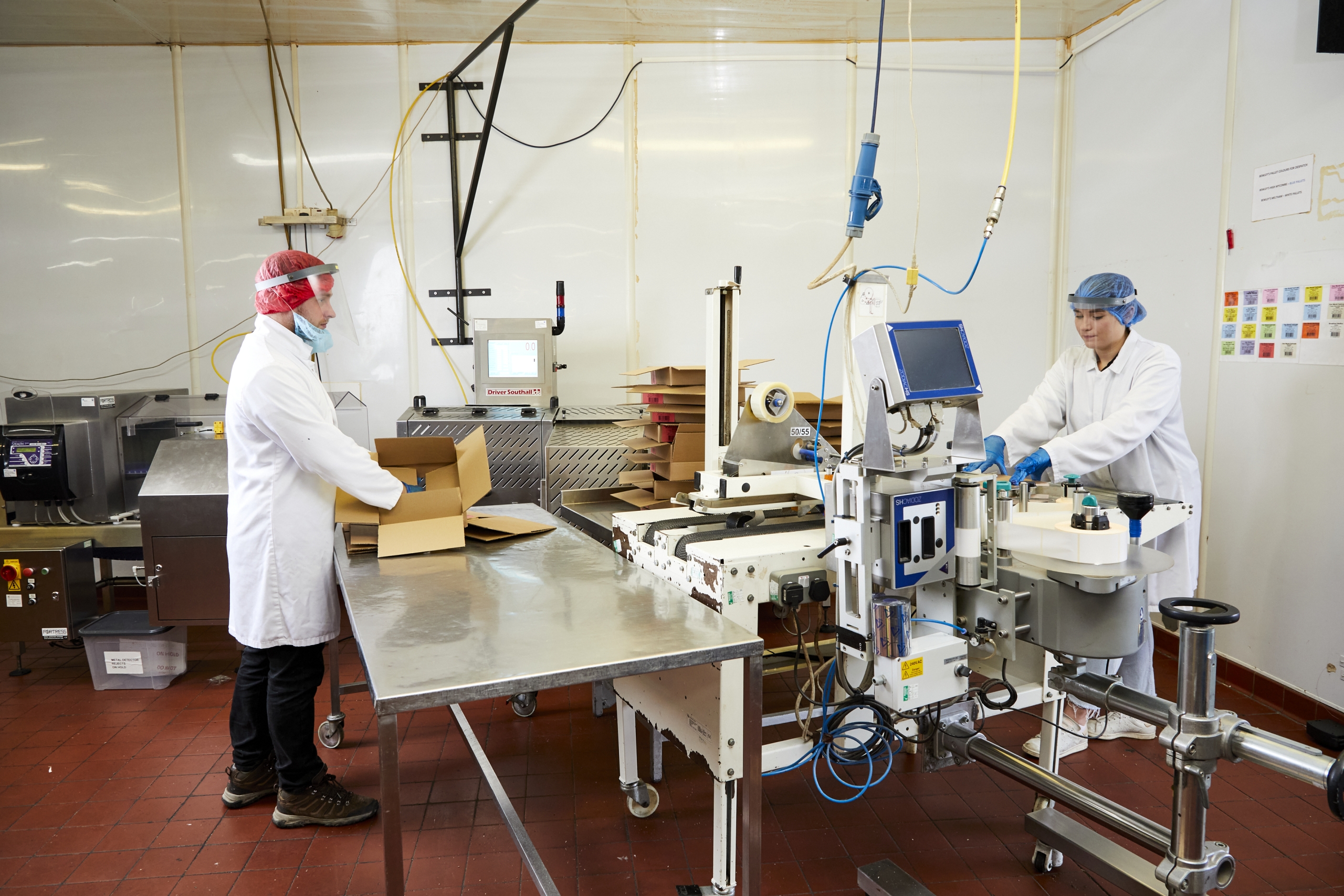
A blueprint for growth
Today, White’s has the infrastructure, leadership and visibility to support up to £7m in turnover at its current site. But the team is already thinking beyond that, with plans underway for a new, purpose-built facility within five years.
To guide this next phase, the company has taken advice from Made Smarter and Enterprising Barnsley, and intends to complete a Smart Industry Readiness Index (SIRI) assessment with a local consultant, helping shape its journey towards full digitalisation.
For Georgina, modernisation is about more than performance. “We have to embrace new technologies and ways of working to attract the next generation. Moving to a paperless system has been part of that. But we’re also proud of our roots. Customers and employees value our heritage and family culture, and it makes this a great place to work.”
From crisis to clarity, from legacy systems to intelligent automation, White’s Bakery is a powerful example of how SMEs can evolve. By investing in people, processes and performance, this fourth-generation family business is building a future that ensures its next 90 years are its most ambitious yet.